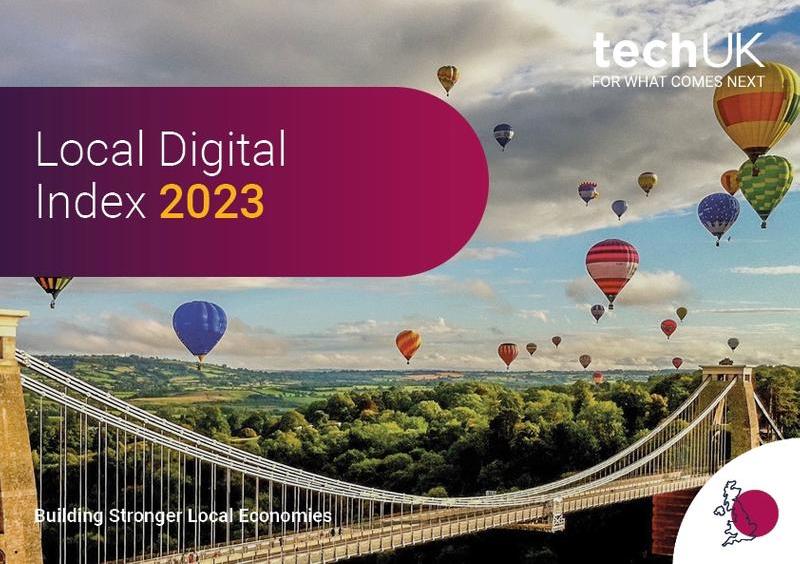Digital transformation is the answer to reducing fraud in the local public sector ecosystem
Fraud in the UK is rapidly becoming industrialised, with recent research showing that 40% of UK businesses have reported known or suspected fraud attempts in the last 12 months. This trend isn’t only impacting the UK; globally, almost half (49%) of businesses that have reported fraud attempts say the levels have increased in comparison to the previous year.
Fraud is certainly not a victimless crime and has serious ramifications for businesses from reputational damage to straining resource and productivity losses to huge financial losses that impact the bottom line.
Rising fraud in the public sector
Like all industries, public services are also facing increasing levels of fraud and the numbers speak for themselves on the level of severity. Latest figures from the National Audit Office (NAO) reported fraud a total of £21 billion between 2020 and 2022 for government accounts. This is a huge increase from the estimated £5.5 billion lost in the previous two years. Temporary COVID-19 schemes in particular suffered from an influx of fraudulent activity – it’s predicted that this accounts for around £7.3 billion of fraud, much of which comprised of loans to businesses.
What’s more, this could just be the tip of the iceberg. Figures from the Public Sector Fraud Authority estimated fraud and error across government at between 33.2 billion pounds and 58.8 billion pounds for the 2020/21 year alone, excluding pandemic-related spending. In response, the UK government launched a new specialist fraud squad to help departments to prevent fraud within its public sector services in May this year and time will tell whether this results in a sustained reduction of fraud levels throughout the government.
Digital transformation is key to preventing fraud in the local public sector
In particular, local public services are under pressure to fight fraud while serving its citizens in the most cost-effective way possible. One key issue the many local public sector organisations face is slower progress to digitise its services and they now have a long way to go to catch up with private organisations that have funnelled considerable investment into their digital transformation strategies. It is a continuing balancing act. Of course, the public sector has an important duty to serve the country and its citizens, but it must work within budgets.
However, delivering services digitally is a great deal less expensive than interacting with people by phone, by post or face to face. Digital records are also cheaper than physical ones, which is why road tax discs and driving licence paper counterparts have since been discontinued. The same is true for tackling fraud.
With rapid data and technology improvements, and increasing alternative data sources, it is becoming easier than ever to implement and benefit from fraud prevention technology. For example, alternative data sources such as mobile data, which can identify fraud signals such as call forwarding and SIM swap detection, and biometrics, including facial recognition technology, can be layered together with document verification to identify fraudsters at the point of onboarding. This is highly beneficial as, ultimately, stopping fraud at the front door is much easier to do than trying to get rid of it once it's in your business.
How to stay one step ahead of evolving fraud trends
As well as this, fraudsters are increasingly leveraging a varying number of sophisticated fraud tactics and smart technology is the most efficient and effective way of identifying and stopping fraudsters from wrongly getting access to goods and services.
For example, our Global State of Digital Identity 2023 report revealed that synthetic identity fraud – where fraudsters use a mix of genuine, stolen personally identifiable information (PII), and manufactured synthetic data to create a fake identity – is one of the fastest-growing financial crimes worldwide and affects multiple industries.
The process of fabricating a false digital identity is complicated, and detecting synthetic fraud is even more so. It requires a robust fraud prevention strategy which layers multiple a combination of credit bureau data checks, email, mobile data and biometrics and other alternative data to strengthen the identity verification process.
Digital services need to reduce costs, but in using them public sector organisations also need to ensure trusted employees can serve their citizens efficiently and comprehensively while also continuing to fight fraud, error, and debt. With around 84% of the world’s countries providing their citizens with access to at least one online transactional service and the global average at 14, it is critical that the public sector is investing into the technology to ensure security and compliance to protect both themselves but also the citizens they are serving. The benefits for could be transformational, both financially for UK Government but will also significantly help improve local services.

techUK – Building Stronger Local Economies

techUK champions the tech sector throughout the UK. We work with local authorities, devolved government, and local and national policy makers to advocate for the tech sector in strengthening economic growth and resilience. We provide opportunities for our members and local stakeholders to meet, build relationships, and collaborate to drive forward local projects. For more information or to get in touch, please visit our Nations and Regions Hub and click ‘contact us’.
Upcoming Nations and Regions events:
Latest news and insights:
Nations and Regions updates
Sign-up to get the latest updates and opportunities from our Nations and Regions programme.
Contact the team:
Learn more about our Nations and Regions campaign:

















